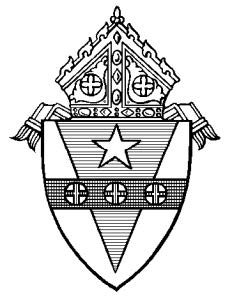
ARCHDIOCESE OF PHILADELPHIA
SECRETARIAT FOR CATHOLIC EDUCATION
222 North Seventeenth Street, Philadelphia, PA 19103-1299
IMMUNIZATION POLICY RATIONALE (2013)
The policy of the Archdiocese of Philadelphia with respect to vaccinations, requires all children to be vaccinated against a wide variety of diseases. Exceptions are not granted, except for medical reasons. Rationale for this policy follows.
Opposition to vaccines arises from two prominent concerns. First, some oppose vaccines due to the manner in which the vaccine is developed. These people object to the fact that some vaccines are produced from cells derived from aborted human fetuses. The second major objection is that vaccines are harmful to the health of the child.
Objection: Vaccines Produced from Cells Derived from Aborted Human Fetuses
Some object on the level of conscience because the vaccines come from aborted fetal cell lines and to receive them would be cooperating with evil. The moral argument in favor of using vaccines made from aborted fetal cell lines is based on the notion of the Catholic principle of cooperation with evil. The use of the vaccines in question would not constitute a formal (i.e., on the level of intention) cooperation with the act of abortion. There is no formal cooperation (either explicit or implicit) in such an action, because the user’s intention is not to procure an abortion, but to benefit from something derived from the aborted fetuses. Their use would be morally permissible on a provisionary basis. At the same time, Catholics would have a responsibility to press for the creation of more morally acceptable alternatives.
The Vatican Pontifical Academy for Life’s, Moral Reflection on Vaccines Produced from Cells Derived from Aborted Human Foetuses, permits such vaccines “on a temporary basis,” while recognizing the duty Catholic have to work for a better solution.
It is clear that parents have no obligation to refuse immunizations derived from cultures taken from aborted fetus cell lines when no suitable substitute immunizations are available. Their cooperation with evil is clearly “remote material cooperation” and therefore morally permissible. Enforcing the current policy of the Archdiocese involves no formal or “immediate material” cooperation in evil, but only remote cooperation.
Objection: Vaccines may prove harmful to the health of the child.
To date there has been no authoritative study that conclusively links vaccines with harmful side effects.
The Church respects the rights of conscience and encourages the faithful to follow their rightly formed consciences. To do so, it is important for parents to examine magisterial teaching themselves and to weigh the opinion of experts in such a matter. The document produced by the Vatican Pontifical Academy for Life’s (mentioned above) is one such opinion. The memorandum from the United States Conference of Catholic Bishops Committee on Doctrine which disallows conscientious objection to the use of the vaccine for rubella is another.
In the matter at hand, the Church is not trying to force parents to change their wellformed consciences on vaccinations (even if they be against the conclusion of the abovementioned document). However, they must accept the consequences. One such consequence is that their child cannot enrolled in a Catholic school.
Parental right to object to these vaccines can come in conflict with the rights of others to preserve their health and be educated in a safe, disease-free environment. Not vaccinating a child for school may jeopardize the health of the entire student body and affect the larger population. When such conflicts arise between individual rights and the rights of the community, the decision should be taken in favor of the common good. This is the best way to serve the needs of human person, the needs of justice, the needs of society, and the needs of public authority. This judgment is especially important when it comes to issues of public health.
It is uncertain as to what degree abstaining from vaccinations can be done without causing significant risk to children, and the population as a whole. Without a clear determination from the scientific community of the safety of granting exemptions from vaccinations, prudence counsels to err on the side of the common good. We have a moral obligation to ensure the safety of the common good.
Consciences of those who object to immunizations for moral reasons should be respected. They have the right to follow their conscience on the matter and choose not to immunize their child. A Catholic school has the obligation to make a moral choice about what is most prudent and just for its populace and has the right to implement it. Should the determination be made that the common good and justice are best served by making immunizations compulsory in order to enroll children, then the right to do so exists. In such a conflict, it is best to err in favor of the common good. In other words, concern for the common good legitimately can override parental calls for a Catholic religious or moral exemption from these vaccinations.
Students who attend Catholic schools in the Archdiocese of Philadelphia are required to receive all vaccines that are identified in the immunization policy (#S 305).
